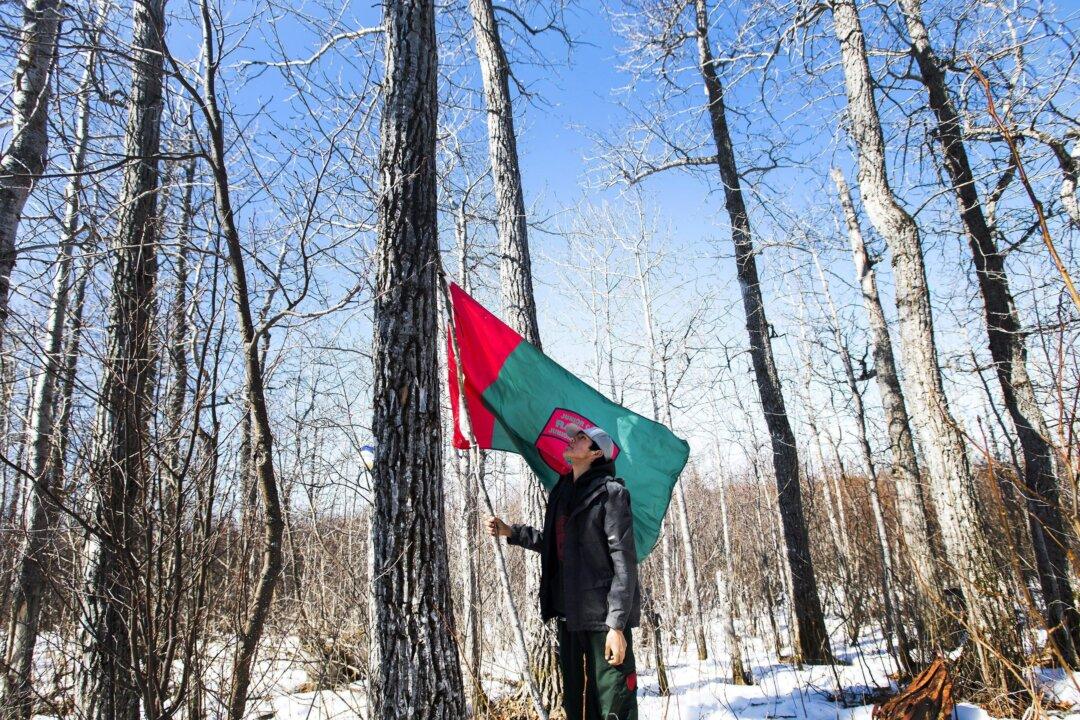ATTAWAPISKAT, Ont.—Out in the bush, a few kilometres from the First Nations reserve of Attawapiskat, about three dozen young Cree are learning basic outdoor survival skills—from a Canadian Armed Forces soldier.
It’s a tiny but important contribution by Canada’s military to a community reeling from a series of suicides and suicide attempts by despairing children and teens, who all too often see little or no future for themselves.
Sitting in a semi-circle around a newly stoked fire, the giggling young men and women are paying various degrees of attention as 2nd Lt. Wesley Jenkins, with the 3rd Canadian Ranger Patrol Group, speaks.
“I just want to talk about what to do if you ever find yourself in a position that you go out on the land and you find yourself lost,” he tells his young charges, pausing as one of the teens’ cellphones rings jarringly.





